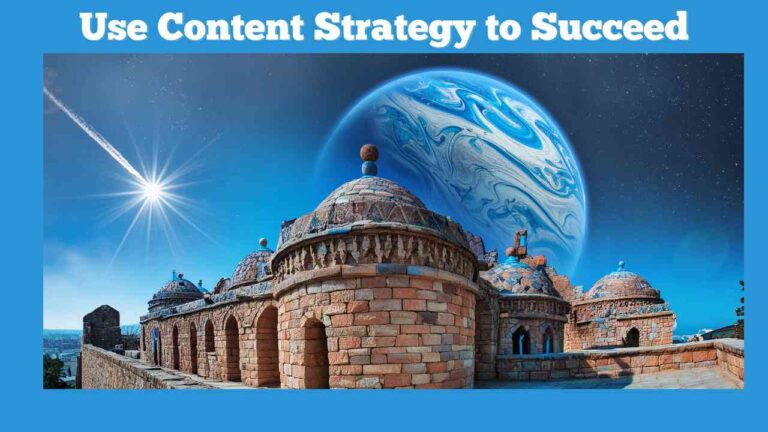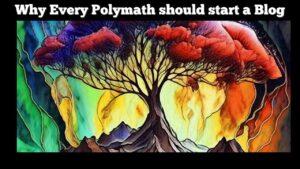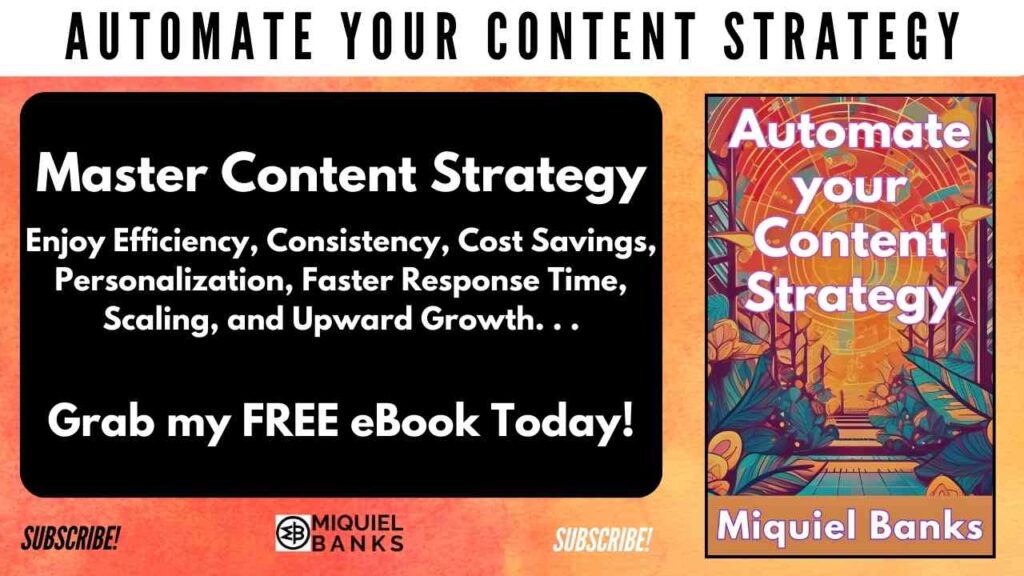Introduction
In a world where knowledge spans countless fields and disciplines, the polymath stands as a beacon of intellectual versatility and creative prowess. But how does one harness such diverse potential and channel it effectively? Enter content strategy—a powerful tool that can guide polymaths in weaving their multifaceted skills into a cohesive narrative. By developing a robust content strategy, polymaths can not only streamline their content generation process but also amplify their impact across various domains. In this piece, we will delve into the critical role of content strategy in polymath development, exploring how it can fuel growth, foster creativity, and maximize your potential.
Understanding Polymath Development
What is a Polymath?
A polymath is an individual who excels in multiple fields or disciplines, leveraging a broad range of expertise and knowledge to solve complex problems creatively. Historically, figures like Leonardo da Vinci and Benjamin Franklin epitomize the essence of polymathy, mastering arts, sciences, and humanities. In today’s interconnected world, polymaths are not confined to any single domain; instead, they thrive across various industries, blending insights from diverse areas to innovate and inspire. This unique ability to synthesize information across disciplines allows polymaths to approach challenges from multiple perspectives, often leading to groundbreaking solutions. Understanding what it means to be a polymath is the first step in recognizing the value they bring to any project or organization, highlighting the importance of nurturing and developing such versatile talents.
The Importance of Diverse Knowledge
Diverse knowledge equips polymaths with the ability to draw connections between seemingly unrelated fields, fostering innovation and creative problem-solving. When individuals are exposed to multiple disciplines, they develop a rich tapestry of skills and perspectives that can be applied in novel ways. This breadth of understanding is crucial in today’s fast-paced world, where complex challenges often require interdisciplinary approaches. For instance, a polymath with expertise in technology and psychology can design user-friendly software that meets both technical standards and human needs. Moreover, diverse knowledge enhances cognitive flexibility, enabling polymaths to adapt swiftly to new situations and learn continuously. This adaptability is a significant asset in any professional setting, making polymaths invaluable contributors to teams and projects. Recognizing the importance of diverse knowledge underscores the need for continuous learning and exploration across various domains.
Challenges Faced by Polymaths
Despite their vast potential, polymaths often face unique challenges that can impede their development. One of the primary difficulties is managing their time and focus. With interests spanning multiple fields, polymaths may struggle to allocate adequate attention to each area, leading to feelings of being spread too thin. Additionally, they might encounter skepticism or misunderstanding from peers and professionals who value specialization over generalization. This can result in less recognition and fewer opportunities, despite their broad skill set. Furthermore, the constant learning curve required to stay proficient in various disciplines can be mentally exhausting. Balancing depth and breadth of knowledge without burning out is a delicate act. To overcome these challenges, polymaths need strategic content planning and time management skills to ensure they can harness their abilities effectively and sustain their intellectual curiosity without overwhelming themselves.
The Power of Content Strategy
Defining Content Strategy
Content strategy is a comprehensive plan that outlines the creation, publication, and governance of useful and usable content. It serves as a roadmap for managing content in a way that aligns with your goals and audience needs. For polymaths, a well-defined content strategy is crucial as it helps streamline their diverse interests and expertise into a cohesive narrative. This involves identifying key themes, setting clear objectives, and determining the best platforms and formats for sharing their insights. By having a structured approach, polymaths can efficiently manage their content generation process, ensuring consistency and relevance. Effective content strategy not only enhances visibility across various domains but also builds a stronger personal or professional brand. Ultimately, it enables polymaths to leverage their multifaceted skills to maximum effect, reaching and resonating with a broader audience.
Core Elements of Content Strategy
The core elements of content strategy provide a structured framework to ensure that your content is relevant, engaging, and effective. These elements include:
Audience Analysis: Understanding who your audience is, their needs, preferences, and pain points. This helps tailor content to resonate with them.
Content Goals: Defining clear, measurable objectives for what you want your content to achieve, such as increasing engagement, educating your audience, or driving conversions.
Content Audit: Assessing your existing content to identify strengths, gaps, and opportunities for improvement.
Content Creation: Planning and producing content that aligns with your goals and audience preferences. This includes choosing the right topics, formats, and channels.
Content Distribution: Strategizing how to effectively disseminate your content across various platforms to reach your target audience.
Performance Measurement: Using metrics and analytics to evaluate the success of your content strategy and make data-driven adjustments.
By focusing on these core elements, polymaths can create a coherent and impactful content strategy that leverages their diverse expertise.
Benefits of a Robust Content Plan
A robust content plan offers numerous benefits that can significantly enhance the impact and efficiency of content generation for polymaths. Firstly, it provides clarity and direction, ensuring that all content efforts align with overarching goals and audience needs. This strategic focus minimizes wasted resources and maximizes return on investment.
Secondly, a well-structured content plan fosters consistency in messaging and branding, which is crucial for building trust and credibility with your audience. Regular, high-quality content can position a polymath as a thought leader across multiple fields.
Moreover, a comprehensive content plan enables better time management. By outlining a clear schedule for content creation and publication, polymaths can balance their diverse interests without feeling overwhelmed.
Lastly, it facilitates performance tracking and optimization. By setting measurable goals and using analytics, polymaths can continually refine their approach, ensuring their content remains relevant and impactful.
Crafting a Polymath-Focused Strategy
Identifying Key Areas of Interest
Identifying key areas of interest is a crucial step in crafting a content strategy tailored for polymaths. Start by listing all the fields and topics that genuinely captivate you. This could range from technology and science to art, literature, and beyond. Once you have a comprehensive list, prioritize these areas based on your level of expertise, passion, and the potential impact they can have on your audience.
It’s also helpful to consider how these interests intersect. For example, if you are passionate about both psychology and marketing, you can create unique content that explores the psychological principles behind consumer behavior. These intersections can become unique niches that set you apart in the content landscape.
By clearly defining your key areas of interest, you create a focused yet flexible framework that allows you to explore your multifaceted talents while maintaining a cohesive content strategy.
Setting Clear and Achievable Goals
Setting clear and achievable goals is essential for a successful polymath-focused content strategy. Start by defining what you want to achieve with your content. Are you aiming to educate your audience, establish yourself as a thought leader, or drive engagement and conversions? Setting specific, measurable goals helps provide direction and purpose to your content efforts.
Break down these overarching goals into smaller, manageable objectives. For example, if your main goal is to grow your audience, set targets for the number of blog posts you will publish each month or the amount of engagement you aim to achieve on social media.
Ensure that your goals are realistic and aligned with your available resources and time. Unrealistic goals can lead to burnout and frustration. Regularly review and adjust your goals based on performance metrics and feedback. This iterative process ensures that your content strategy remains dynamic, effective, and aligned with your evolving aspirations as a polymath.
Creating a Balanced Content Calendar
Creating a balanced content calendar is vital for managing the diverse interests of a polymath while ensuring consistent content production. Start by mapping out a schedule that includes various types of content—blog posts, videos, podcasts, social media updates, and more. This diversity keeps your audience engaged and caters to different consumption preferences.
Allocate specific time slots for each key area of interest identified earlier. Ensure a mix that reflects your multifaceted expertise without overwhelming any single discipline. For example, you might dedicate Mondays to technology topics, Wednesdays to art, and Fridays to psychology.
Incorporate flexibility within your calendar to accommodate spontaneous ideas and emerging trends. This adaptability allows you to stay relevant and responsive to your audience’s needs.
Regularly review and adjust your calendar based on performance metrics and feedback. A well-balanced content calendar not only streamlines your content generation process but also helps maintain a cohesive and dynamic presence across various platforms.
Content Generation Techniques
Leveraging Diverse Mediums
Leveraging diverse mediums is a strategic approach that can significantly enhance the reach and impact of your content. As a polymath, you have the advantage of versatility, which allows you to experiment with various formats such as blog posts, videos, podcasts, infographics, and social media updates. Each medium has its strengths and can cater to different segments of your audience.
For instance, blog posts are excellent for in-depth analysis and detailed explanations, while videos can be more engaging and visually appealing. Podcasts offer a convenient way for your audience to consume content on the go, and infographics can make complex information easily digestible.
By diversifying your content mediums, you not only keep your audience engaged but also increase the chances of your content being shared across different platforms. This multi-channel approach helps you reach a broader audience and reinforces your expertise across various domains, maximizing your impact as a polymath.
Curating Quality Over Quantity
Curating quality over quantity is crucial for a successful content generation strategy, especially for polymaths with diverse interests. High-quality content resonates more with your audience, builds credibility, and drives meaningful engagement. Instead of churning out numerous pieces of mediocre content, focus on producing fewer, well-researched, and thoughtfully crafted pieces.
Start by identifying topics that genuinely excite you and align with your audience’s interests. Invest time in researching these topics thoroughly, ensuring your content offers valuable insights and fresh perspectives. This approach not only enriches your audience’s experience but also reinforces your authority in multiple fields.
Moreover, high-quality content tends to perform better in search engine rankings, increasing your visibility and reach. By prioritizing quality, you create a lasting impression, encouraging your audience to return for more.
Remember, impactful content takes time and effort to create. By curating quality over quantity, you lay a strong foundation for sustained growth and influence as a polymath.
Utilizing SEO for Polymath Development
Utilizing SEO (Search Engine Optimization) is essential for enhancing the visibility and reach of your content, particularly when you have expertise across multiple fields. Effective SEO practices ensure that your high-quality content is easily discoverable by those seeking knowledge in your areas of interest.
Begin by conducting keyword research to identify terms and phrases that your target audience is searching for. Incorporate these keywords naturally into your content, including titles, headers, and meta descriptions. This helps search engines understand the relevance of your content.
Additionally, focus on creating comprehensive and authoritative content that addresses the needs and questions of your audience. High-quality backlinks from reputable sources can further boost your search engine rankings.
SEO is not a one-time effort but an ongoing process. Regularly update and optimize your content to reflect the latest trends and insights. By leveraging SEO, you can amplify your influence and reach as a polymath, ensuring your diverse expertise benefits a wider audience.
Encouraging Continuous Growth
Embracing Lifelong Learning
Embracing lifelong learning is fundamental for the continuous growth and development of a polymath. The ever-evolving nature of knowledge across various fields demands a commitment to ongoing education and curiosity. Lifelong learning enables polymaths to stay current, expand their expertise, and adapt to new challenges and opportunities.
To foster lifelong learning, actively seek out new information through various channels such as books, online courses, seminars, and workshops. Engage with communities and networks that share your interests, exchanging ideas and insights to broaden your perspectives.
Moreover, allocate time regularly for learning and self-improvement within your schedule. This not only enhances your skills but also keeps your passion for multiple disciplines alive.
By embracing lifelong learning, you maintain a dynamic and versatile mindset, essential for thriving in diverse fields. This commitment to continuous education empowers you to innovate, inspire, and make significant contributions across various domains.
Engaging with a Polymath Community
Engaging with a polymath community can significantly enhance your development and continuous growth. These communities offer a rich environment for exchanging ideas, gaining new insights, and finding inspiration. By interacting with like-minded individuals who share a passion for diverse fields, you can broaden your horizons and deepen your understanding.
Participate in forums, social media groups, and local meetups dedicated to polymaths or interdisciplinary topics. These platforms provide opportunities for networking, collaboration, and mentorship. Sharing your experiences and learning from others can lead to innovative solutions and new perspectives.
Moreover, being part of a polymath community fosters a sense of belonging and support. It helps mitigate the loneliness that can sometimes accompany multifaceted interests. Engaging with others who understand and appreciate your unique journey can be incredibly motivating and empowering.
By actively participating in a polymath community, you nurture your intellectual curiosity and drive, ensuring sustained growth and development.
Measuring and Reflecting on Progress
Measuring and reflecting on progress is vital for the continuous growth of a polymath. Regularly evaluating your achievements helps you understand what’s working, identify areas for improvement, and stay aligned with your goals. This process ensures that your efforts are effective and meaningful.
Start by setting measurable objectives and key performance indicators (KPIs) for each area of interest. These metrics could include content engagement rates, audience growth, or skill development milestones. Use tools like analytics software to track your progress and gather data.
Take time to reflect on your accomplishments and challenges. Regular self-assessment allows you to celebrate successes and learn from setbacks. This introspection helps you adjust your strategies and set new, more informed goals.
Journaling your experiences and insights can also be beneficial. It provides a record of your journey, making it easier to see how far you’ve come and where you need to go next.
By consistently measuring and reflecting on your progress, you maintain a clear and purposeful path toward continuous growth as a polymath.











